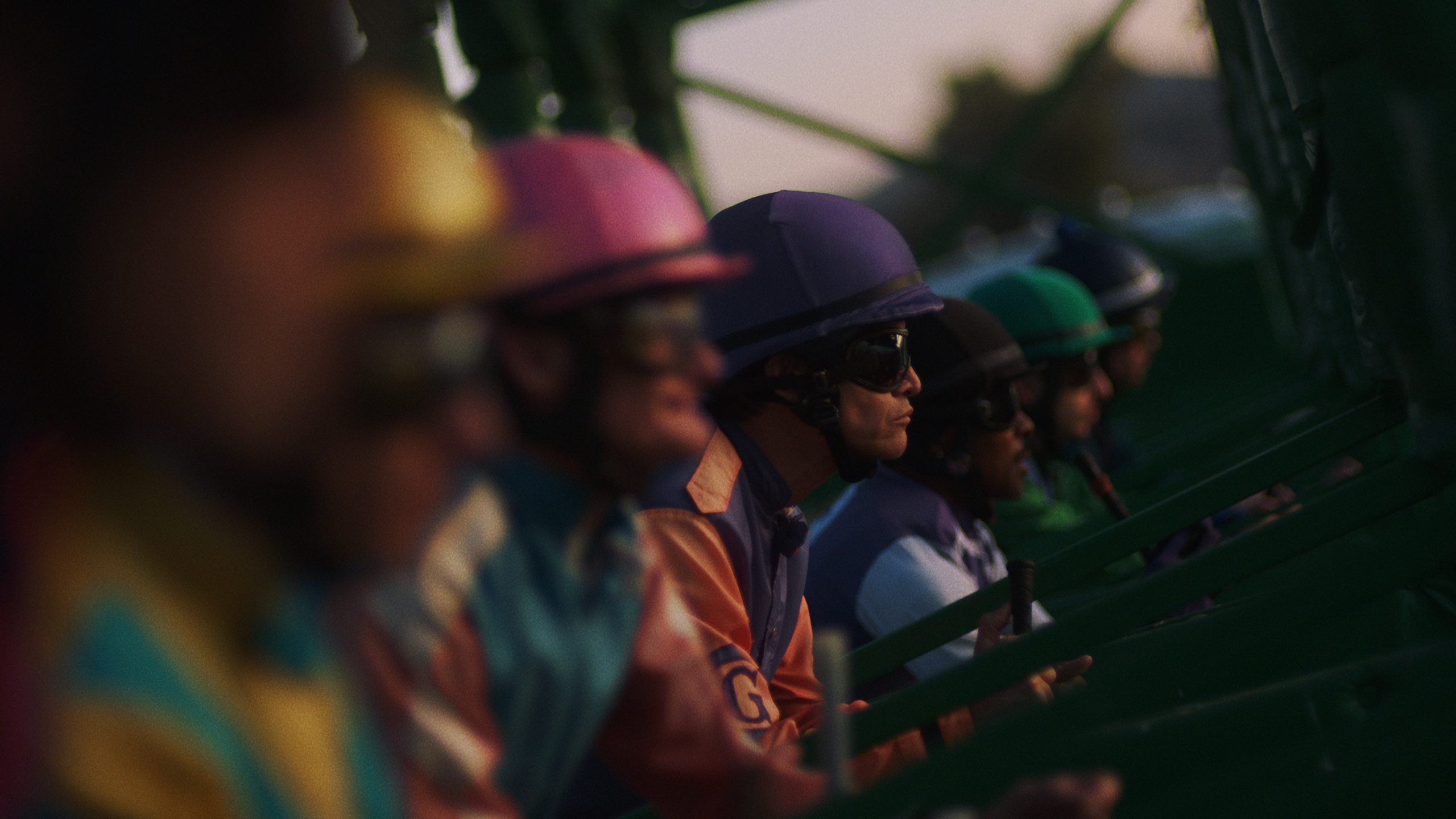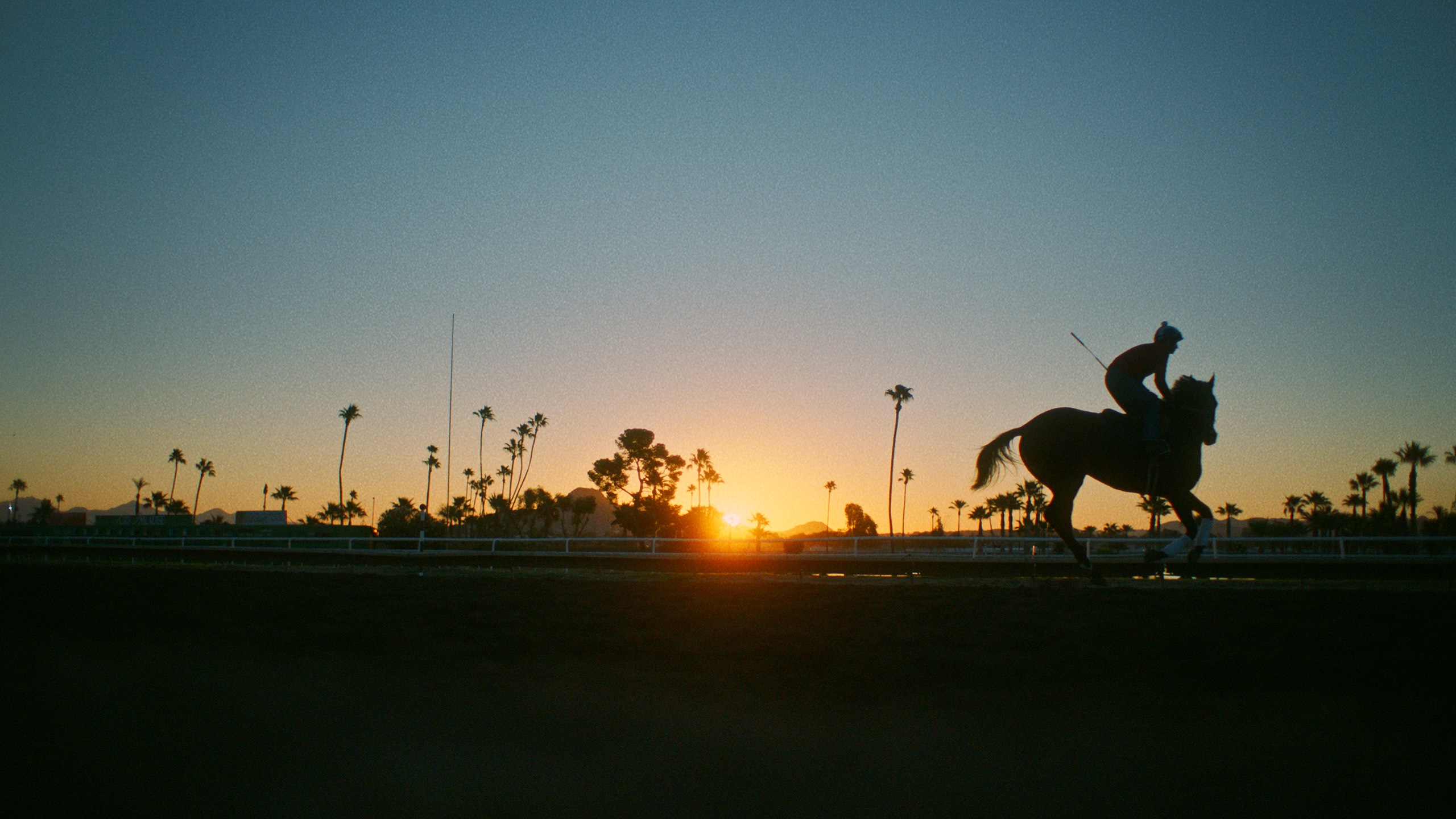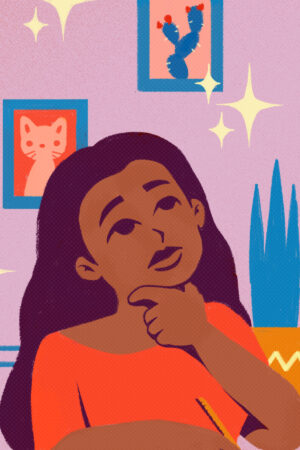Working in the film and TV industry over the last 30 years, Mexican-American actor Clifton Collins Jr., best known for his roles in indie films like Capote and blockbusters like Star Trek and Pacific Rim, is always focused and ready for the challenge ahead.
His talent is put center stage in Jockey, which made its world premiere at the Sundance Film Festival on Jan. 31 and earned him a Special Jury Award for Acting. In the film, Collins Jr. plays Jackson Silva, a veteran horse jockey at the end of his career who wants to finish strong despite suffering from a serious spinal injury. When a young jockey (Moisés Arias) who arrives to compete in his circuit claims to be his son, Jackson must step back and reevaluate what’s most important to him and what his future holds for him as a rider and a father.
During our interview, Collins Jr., who is the grandson of late actor Pedro Gonzalez Gonzalez (a regular in John Wayne Westerns for decades), talked about the difference between the horses he works with on the HBO series Westworld and the thoroughbreds in Jockey, plus why he thinks Latinos make up half of the jockeys in the U.S., and more.

How did you get involved in this film?
Clint Bentley, the director, and Greg Kwedar, the producer, approached me with this idea about this jockey mentor. We had already done a film previously called Transpecos. It was one of the most fun and creative collaborations I’ve had in a while. To have another opportunity to collaborate with people you trust was a dream come true. I think that’s what all artists want. Sometimes actors will get partnered up with someone who doesn’t share the same vision. With a film like Jockey, you’re under-financed and under-sourced, but you have everyone’s passion for all the right reasons. We didn’t have a first assistant director or hair and makeup. It was very easy to hide amongst the crowd, which is a joy for an actor like myself. It was great to have some anonymity and hang out with the jockeys and dress like them and get heckled because I was slightly overweight compared to the others.
With a film like Jockey, you’re under-financed and under-sourced, but you have everyone’s passion for all the right reasons.
You’ve had some experience working with horses on Westworld, but how was Jockey different?
When you go from horses on a Western to thoroughbred horses, it’s like going from a Mustang to a twin-turbo Porsche. When that gate opens, they just want to run. You’re just happy to be a visitor. In Westworld, our horses are so well trained and some of the most beautiful, fantastic horses you’ll ever ride. Even the ones that try to buck you are fine. I can handle those guys. They’re maneuverable and you can do little tricks with them. That is not what you get with a thoroughbred horse. You want to be balanced on their shoulders the right way and all you really have to do is nudge them. You don’t really control them. I had a special connection to the horses, but I really can’t explain that part of it. But it was special.
Did you learn anything about the pain management of jockeys while making this film? I mean, when you talk about a full-contact league like the NFL, football players will play even with broken bones. Is it the same with jockeys?
Oh, my God, yes! In my opinion, jockeys are some of the toughest athletes on the planet. These guys break bones like putting on your shoes in the morning. It’s a different culture that these athletic soldiers live in. The definition of pain always comes down to two things: will I ever walk again, or can I ever ride again? If you’re able to still ride, then you’re never really hurt. If you’ve broken both your femurs or your neck, it doesn’t matter. This is the stuff I learned by just spending all my days with jockeys. It was such an honor and privilege to be in that world, which is vital to the authenticity of the film. They allowed us to be a part of their world, and it was so humbling.

Anytime you deal with a community that is historically oppressed, they have extra ambition & will take extra risks.
I recently read that since 2000, the percentage of Latino jockeys has risen from 30 to 50% in the U.S. Why do Latinos do so well in this particular sport?
It’s the passion and the drive and the hunger. You’ve got everything to gain. It’s a high-stakes sport, win or lose. There were a lot of us out there and not just Mexicano. There were all kinds of Latinos—Colombian, Puerto Rican. I think anytime you deal with a community that is historically oppressed, they have extra ambition and will take extra risks for the cause and to get ahead. They’re the ones that are going to push harder.
It’s the passion and the drive and the hunger. You’ve got everything to gain
And they’re the epitome of what an unsung hero in the sports world is, right? I mean, no one necessarily remembers the name of the jockey. They remember the horses and names like Secretariat and Seabiscuit.
Right, but it’s a symbiotic relationship. They’re a unit. I wouldn’t say they were equals because that would be defined by a 50-50 relationship and that’s not really the case because that horse is gonna go where it wants. It’ll take 30 percent of your suggestions. All the jockeys I knew had a deep connection to the horses and the horses to them. They count on one another and they enjoy being together. One thing I didn’t get on Westworld is that I didn’t really get a chance to understand [the horses’] personalities. In Jockey, the nature of the horses was different and closer to human range. Now, I can look at horses and be like, “That one is a little hurt or that one is really excited to be here or this one is grumpy.” I can see it like it’s black and white.







